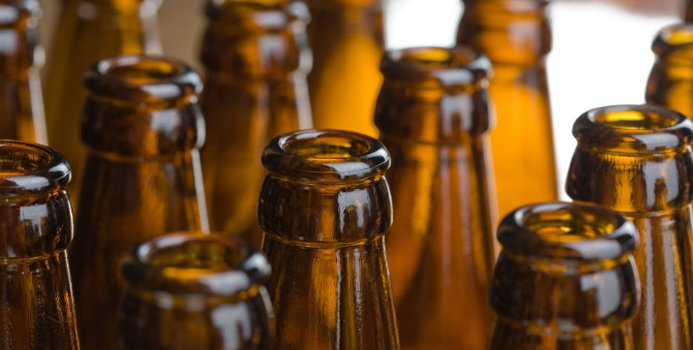Alcohol contains empty calories and has no nutritional value. Your body can't store alcohol, so it must metabolize it right away. Metabolizing alcohol, however, can have a detrimental effect on other metabolic processes. Here's what you should know about alcohol and your metabolism.
Alcohol and Nutrition
Alcohol contains only empty calories and has no nutritional value. It can often contribute to malnutrition because the high levels of calories in most alcoholic drinks can account for a large percentage of your daily energy requirements. Even one alcoholic drink a day can contribute to malnutrition.
Your body can't store alcohol, so it must metabolize it right away. When you drink alcohol, your body makes metabolizing it a priority over all other metabolic processes. Your body sends alcohol to the liver, which produces the enzymes necessary for the oxidation and metabolism of alcohol.
Not only does alcohol not contain any nutrients of its own, but it can impair your body's ability to absorb nutrients and vitamins from the food you eat. Alcohol irritates your gastrointestinal tract, and can damage your body's ability to absorb nutrients, vitamins and minerals from the food you eat.
Alcohol and Your Liver
Alcohol is toxic to your liver, and if you drink heavily for a long time you can experience cirrhosis of the liver and death. Heavy drinking over the long term can also impair your liver's ability to activate vitamins, which contributes to the malnutrition often suffered by long term alcoholics.
Alcohol and Blood Sugar
Maintaining adequate blood sugar levels is one of the key functions of your metabolism, but when you drink alcohol, maintaining healthy blood sugar levels is one of the first elements of metabolism to be shoved aside in your body's rush to excrete the toxins as efficiently as possible. Alcohol inhibits your body's ability to make glucose and to maintain healthy levels of glucose (or blood sugar) in the blood. Over time, heavy drinkers develop glucose intolerance and can even become diabetic.
Even occasional alcohol consumption can cause dangerous drops in blood sugar levels, especially when consumed on an empty stomach. That's why drinking alcohol can be very dangerous for diabetics and hypoglycemics.
Alcohol Can Cause Weight Gain
Because your body can't store alcohol and must metabolize it right away, other metabolic processes suffer. Your body won't metabolize sugars and fats as efficiently during the metabolism of alcohol, and drinking heavily can cause your metabolism to slow. This can contribute to weight gain, as can the empty calories found in alcohol. You can use FitDay.com to keep track of the calories you consume and your nutrition, so that alcohol doesn't hinder your weight loss plans or put you at risk of malnutrition.
Alcohol Also Causes Weight Loss
Alcohol can also cause weight loss in those who drink heavily over the long term. Alcohol continues to slow the metabolism of long term drinkers, but it also causes inflammation in the organs of the digestive tract. If you drink heavily in the long term, alcohol can impair your body's ability to absorb nutrients. If you become chronically malnourished due to alcohol consumption, you'll lose weight in spite of your slower metabolism.



